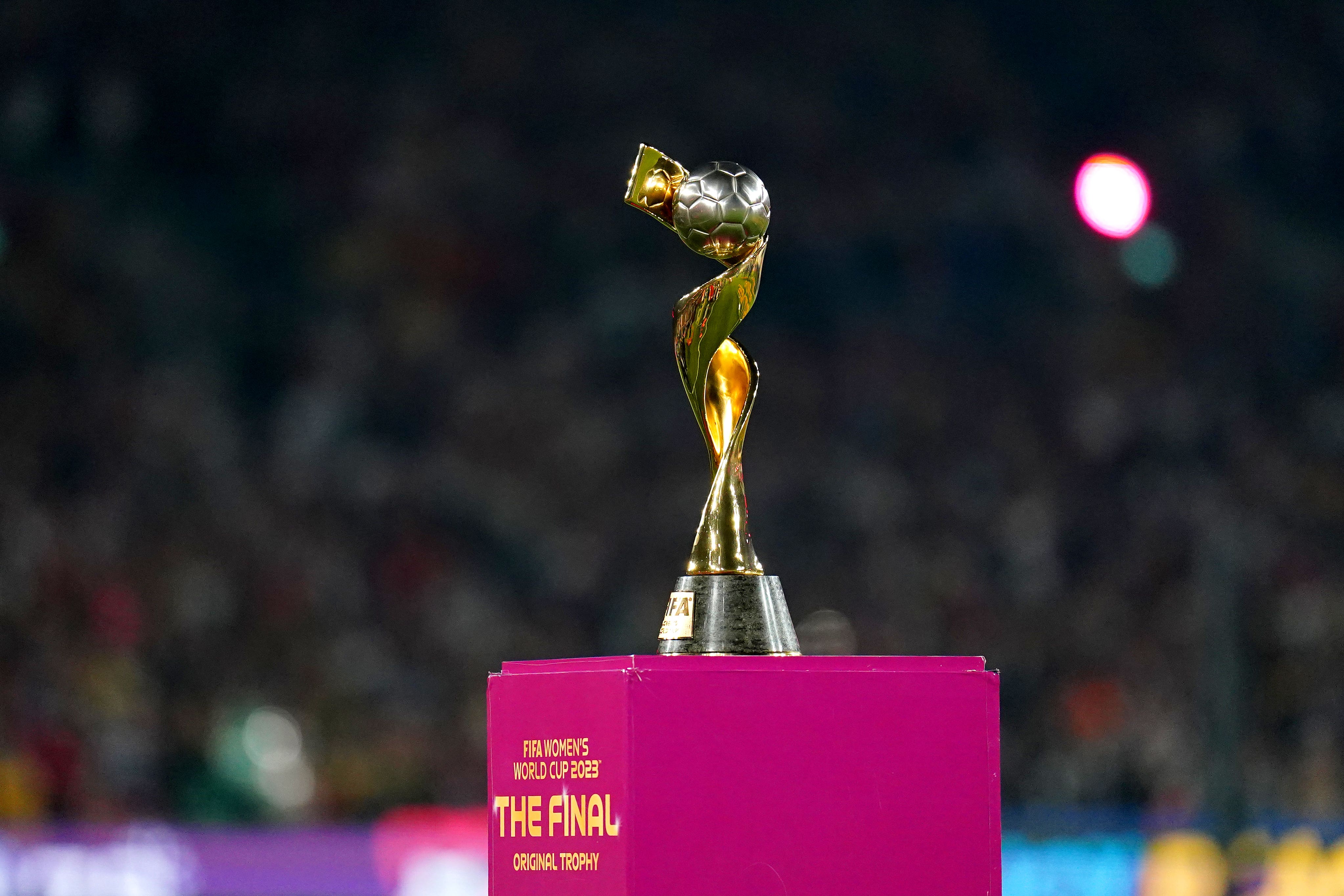UK Sport sets sights on hosting Fifa Women’s World Cup for first time in target list for next decade
The target list comprises 70 events across 32 sports taking place between 2024 and 2040

Your support helps us to tell the story
From reproductive rights to climate change to Big Tech, The Independent is on the ground when the story is developing. Whether it's investigating the financials of Elon Musk's pro-Trump PAC or producing our latest documentary, 'The A Word', which shines a light on the American women fighting for reproductive rights, we know how important it is to parse out the facts from the messaging.
At such a critical moment in US history, we need reporters on the ground. Your donation allows us to keep sending journalists to speak to both sides of the story.
The Independent is trusted by Americans across the entire political spectrum. And unlike many other quality news outlets, we choose not to lock Americans out of our reporting and analysis with paywalls. We believe quality journalism should be available to everyone, paid for by those who can afford it.
Your support makes all the difference.UK Sport has outlined ambitions for the United Kingdom to host its first Fifa Women’s World Cup in the 2030s.
The global showpiece is the biggest sporting event the UK has never held, and one of several new additions to the funding body’s latest list of major event hosting targets, alongside a World Athletics Championship in 2029 or 2031 and a men’s Rugby World Cup in 2035 or 2039.
The target list comprises 70 events – including 18 world championships – across 32 sports taking place between 2024 and 2040, and while inclusion on the list is just the first of a number of steps before a decision to bid is made, it marks another move forward.
Esther Britten, head of major events at the government agency, said: “If we had this list without [the Women’s World Cup] on we’d all be saying, ‘why is it not on it?’. We want to explore this meaningfully in the 2030s and make the right decision about which iteration of the Women’s World Cup is one to go for.
“The environment that we land any of these women’s sports events in is one where we have athletes that are getting increasing cut-through, that are championing their sports, that are speaking out for their sports, and we have increasingly an environment where we have people who want to go and watch these sports.
“That’s why it should be on our list for consideration, but choosing the right time will be [about] the wider international relations factors.”
Every event is subject to a feasibility evaluation which considers factors such as chances of success, venue selection, bid process, financial contributions and costs, as well as the social impact potential.
Such a study would be the next step for the Women’s World Cup, which is currently on the list as an “opportunity” alongside a potential men’s Rugby World Cup.
Simon Morton, UK Sport’s deputy CEO, said it is likely stakeholders would gather after the 2027 Women’s World Cup hosts are announced at the 74th FIFA congress in May 2024.
A joint bid from Belgium, Germany and the Netherlands is being considered alongside one from Brazil, while the United States and Mexico have also put themselves forward as co-hosts, while the 2031 hosts will be confirmed in 2025.
Morton said the 2027 host selection may help narrow down which of the next decade’s three Women’s World Cups could give the UK the best chance, while also needing to factor in the Lionesses’ prospects of success in each of those years.
“We have to respect the fact that there are other countries interested in hosting them, so the sort of political dynamics across international federations, in terms of where these events might go, is something that’s outside of our control,” he said. “So that’s why you see a little bit of an open-ended position.
“There’s definitely an aspiration to host the Women’s World Cup in the 2030s, but we need to see who FIFA will go with for that [2027] tournament.
“I haven’t met anyone who thinks that going for the Women’s World Cup is a bad idea, and I think most people would want it to happen as soon as possible, but we’re open-minded about when it might be in the 2030s.”
UK Sport is also exploring the possibility of establishing a new central body to help deliver events where sports and cities are unable to do so.
The Women’s World Cup is one of several events on the list that would also require government funding. Events can move into the feasibility study phase regardless of which political party is in power, but decision-making about investment will need to be taken by ministers.
Despite this being an election year, Morton was optimistic about securing support for major events no matter who the prime minister is by the end of 2024.
“I think politicians have a timeless understanding of the power of these events,” he said. “I don’t think the importance of live sport to this country, in particular, and to the people and communities of this country, is going to change, irrespective of who is in power.”
Every event on the list is either multi-gender or, where a men’s edition has been included, so has the women’s counterpart, with the 2031 or 2035 Ryder Cups also newly included having reached the live feasibility study phase, alongside the 2029 or 2031 World Athletics Championships and five other events.
Join our commenting forum
Join thought-provoking conversations, follow other Independent readers and see their replies
Comments